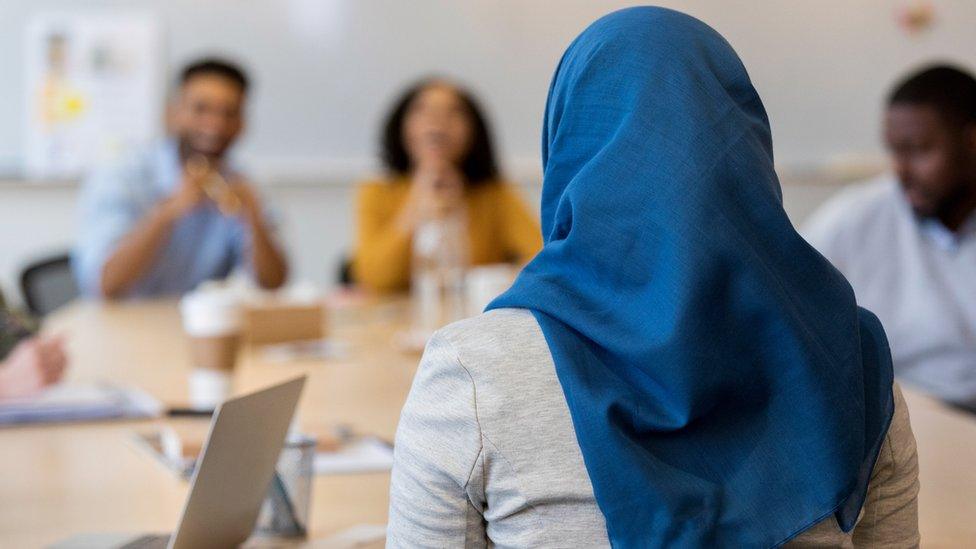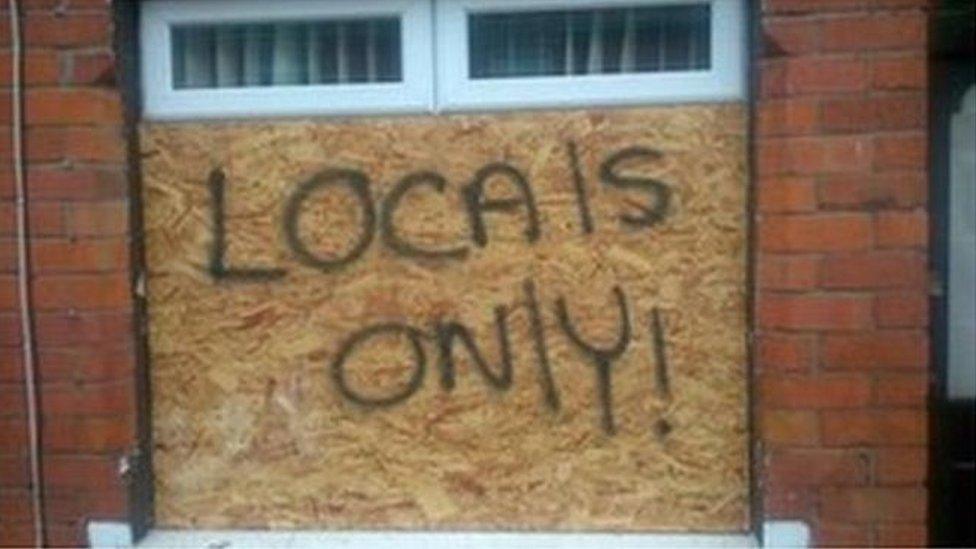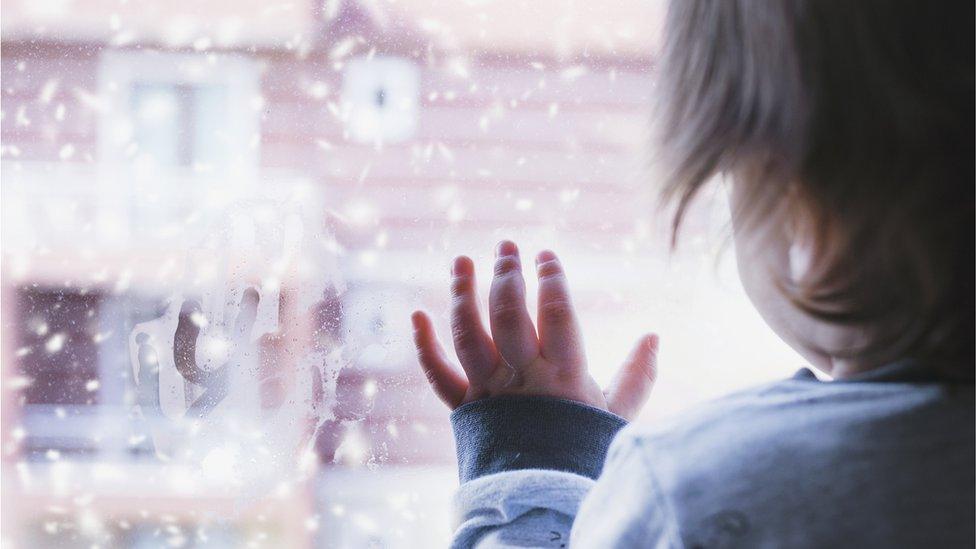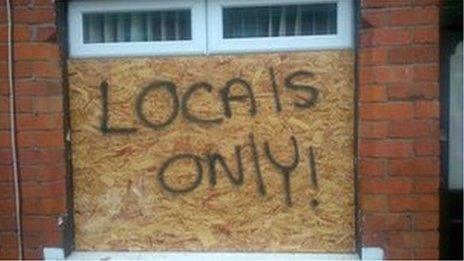Belfast's ethnic minorities face racism and poverty, report finds
- Published
Salwa Alsharabi says having to move house several times since arriving in Belfast has had a damaging effect
Many ethnic minority residents of Belfast still face "racism, isolation and poverty," according to a new report.
Many of them also view local politics as "inaccessible and irrelevant" due to a "Green/Orange emphasis".
The research examined the experiences of Black, Asian, ethnic minority and Traveller people living in Belfast.
It was commissioned by Belfast City Council, the Public Health Agency (PHA) and the Belfast Health Trust.
Their report also said the experiences of ethnic minorities and migrants were often "side-lined" in government policy-making.
But three-quarters of ethnic and migrant residents interviewed during the research were optimistic about their future in Belfast.

The report said "employment experiences in Belfast vary significantly by ethnic and national group"
There are almost 125,000 people from minority ethnic communities living in Northern Ireland, in addition to an increasing number of asylum seekers and refugees.
There are now many second and third generation Chinese and Indian communities in Northern Ireland, and the number of people of African descent is also growing.
'Difficulty getting promotion'
Belfast City Council, the PHA and the health trust have just published a report into inequalities experienced by Black, Asian, Ethnic Minority and Traveller people who live in Belfast.
It said that not all issues were faced by the same groups, and some communities had been highly successful.
For instance, "employment experiences in Belfast vary significantly by ethnic and national group," according to the report.
But some of those interviewed said they faced difficulty when it came to getting promotion in work.
A number said they were in jobs well below their qualifications, while help with language learning and work-related training were also issues for some.
About 40% of those interviewed by the researchers said they had experienced racist hate crime, while a similar proportion of parents said their children had faced racist bullying in school.
"Those who reported hate crimes to the police in the past are largely disinclined to do so again because of unsatisfactory outcomes," the report continued.
Previous research commissioned by Belfast City Council in 2019 suggested most Muslims did not report hate incidents to the Police Service of Northern Ireland.

Some people from ethnic minorities living in Northern Ireland have been the target of racist attacks in recent years
The new report identified a number of other key issues faced by minority ethnic communities and migrants.
"Housing quality and overcrowding are the most significant issues facing migrant and minority ethnic residents of Belfast," it said.
Home ownership was difficult for many due to low income, insecure work.
"Discrimination in the private rental market is also driving people into precarious living situations, with short-term and even exploitative illegal rental agreements," the report continued.
"There appears to be a growing risk of migrant and refugee destitution in Belfast for those in precarious housing situations.
"There continues to be a substantial level of racist and xenophobic hate crime in the city, and this is used strategically in some areas to deter migrants and minority ethnic residents from choosing to live there."
But four in five people interviewed for the report said they were happy to live in their area due to good neighbours and local facilities.
Northern Ireland's school system was highly rated by many parents and children, but the report also said that some parents had "concerns about their child's school, particularly around discrimination and exclusion".
Many adults also wanted to get access to education but that could be difficult and there were long waiting lists to English for Speakers of Other Languages (ESOL) courses in the city.
Experience of the health service was mixed, but pharmacies were particularly well used and valued.
'Exposed to trauma'
However, the report said that refugees in particular needed mental health support due to their experiences.
"Access to mental health support is particularly important for refugees, who have been exposed to trauma during transit to Northern Ireland as well as during conflict and war," it said.
Meanwhile, fewer than half of those interviewed for the report had voted.
"Politics is broadly seen as inaccessible and irrelevant because of a Green/Orange emphasis, even in local constituency and neighbourhood matters", it said.
"Trust in political representatives is particularly low across all ethnic and national groups in this study."
The report's findings were based on detailed interviews and focus group discussions with 164 ethnic minority and migrant residents of Belfast.
It concluded with a range of recommendations including stronger "zero tolerance" messaging from Belfast City Council on racism and more support for victims of hate crime.
It also called for more anti-racism activities in schools and for the Belfast Trust to look at ways to employ asylum seekers with healthcare experience and skills.
Additionally, it said there needed to be a long-term plan to help asylum seekers living in hotels.
BBC News NI previously revealed that more than 1,200 asylum seekers were living in hotels in Belfast.
Some organisations and politicians have expressed concern about the conditions they are living in.
Related topics
- Published20 June 2022

- Published26 March 2019
